Keynote speaker
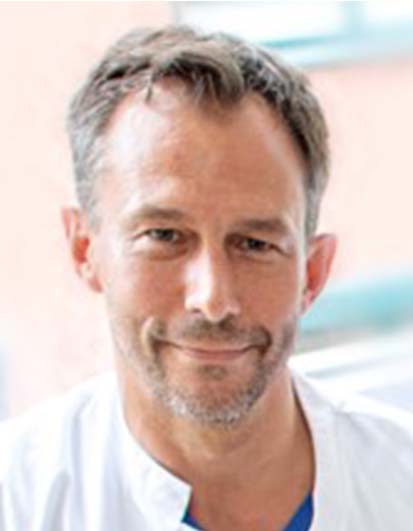
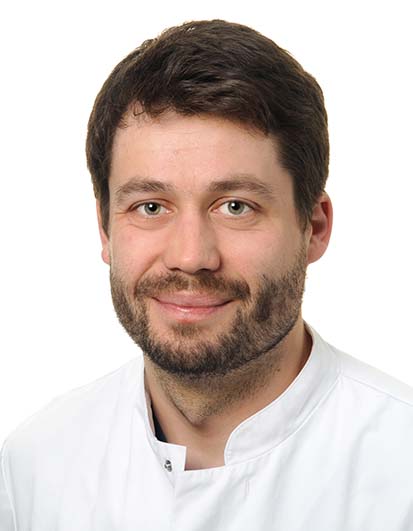
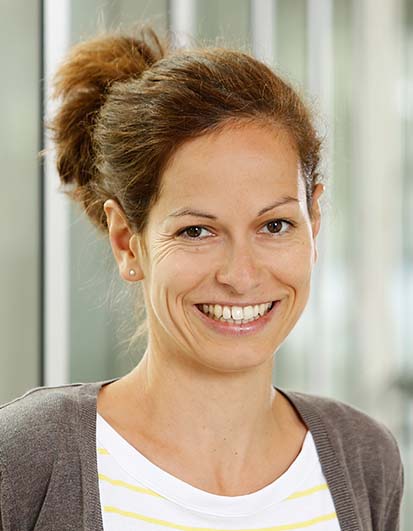
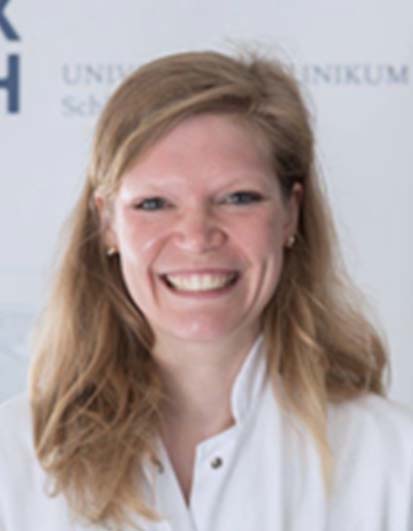
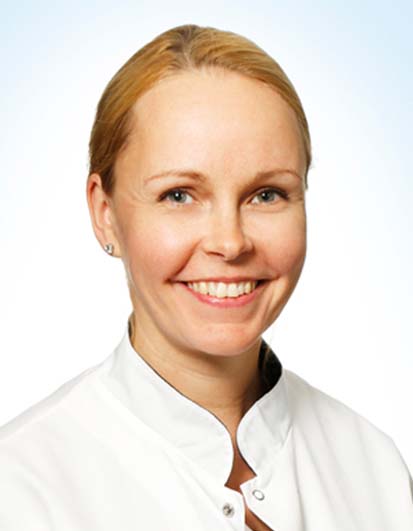
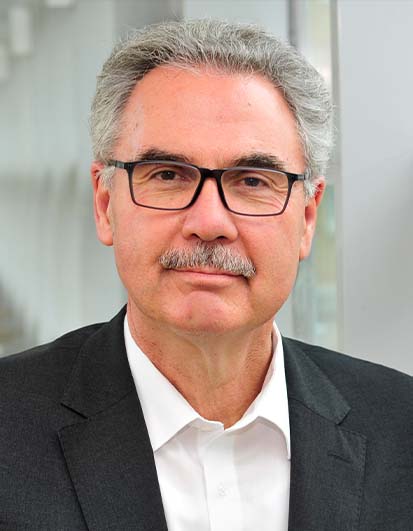
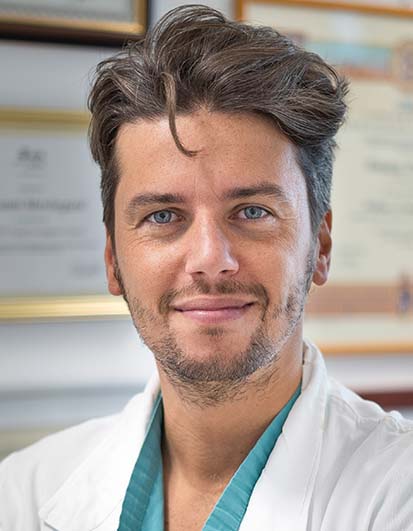
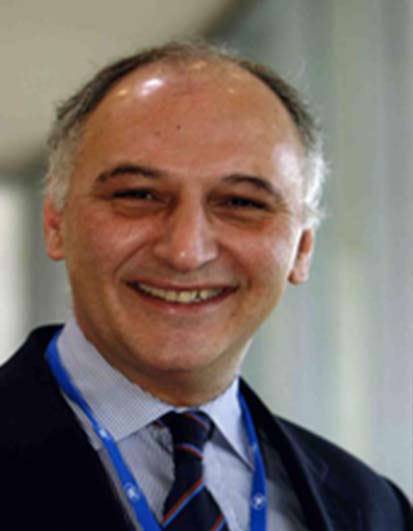
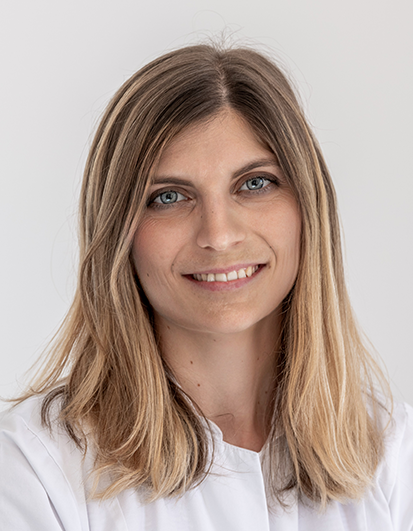
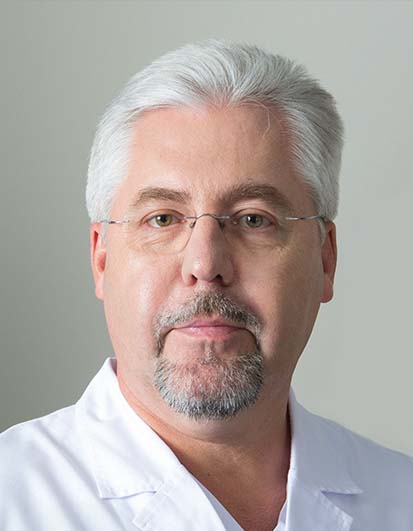
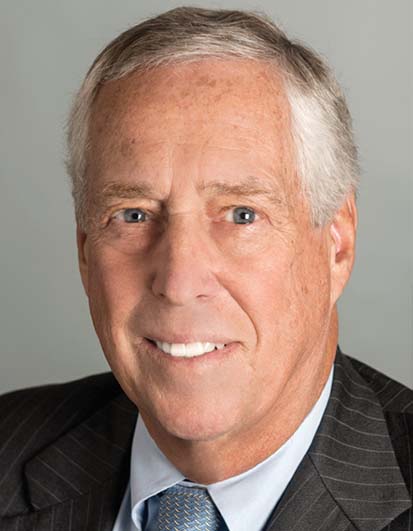
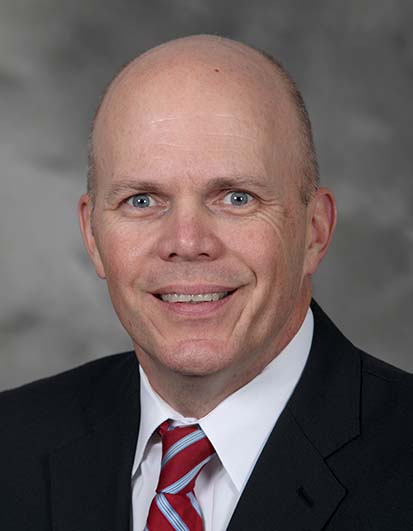
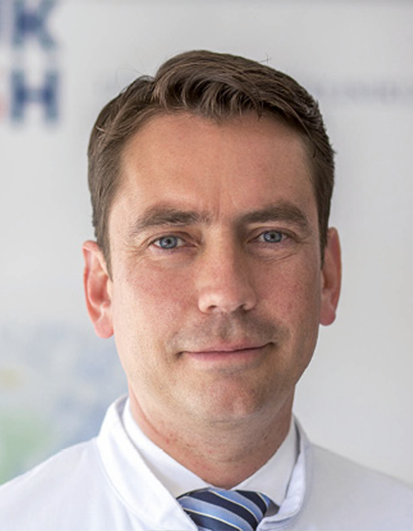
Thursday, Feb 10, 2022
Andrew L. Warshaw (USA): 50 Years of Pancreatic Surgery - First Hand Experience
50 Years of Pancreatic Surgery - First Hand Experience
Prof. Dr. Andrew L. Warshaw, Boston, MA, USA
In 1971 when I finished training and entered clinical practice, the pancreas was essentially an orphan organ. Relatively little was known about the diseases affecting it—acute and chronic pancreatitis, cancer and other neoplasms. Cystic tumors were on nobody’s radar, in fact had hardly been described and were commonly misdiagnosed as pseudocysts. The only relevant imaging modalities were plain x-rays and upper gastrointestinal barium studies. Ultrasonography, CT scans, MRI, PET scans, and ERCP had not yet appeared. Operating on the pancreas was both challenging and, because of high risk of complications and death, avoided by most surgeons. As trainees we had been advised to “eat when you can, sleep when you can, and don’t mess with the pancreas”. The enormous progress in our understanding of pancreatic pathobiology, diseases, and their surgical treatment over the intervening 50 years will be the subject of my presentation.

Dr. Andrew Warshaw, a graduate of Harvard College and of Harvard Medical School, trained in surgery at the Massachusetts General Hospital, as a Clinical Associate in the Section on Gastroenterology of the National Institutes of Health and as a research fellow in gastroenterology at the Massachusetts General Hospital. He has been on the staff at the Massachusetts General Hospital and the faculty of Harvard Medical School since 1972. In 1987, he became Professor of Surgery at Harvard and in 1997 the W. Gerald Austen Professor of Surgery, Surgeon-in-Chief and Chairman of the Department of Surgery at the Massachusetts General Hospital, positions he held until 2011.
Dr. Warshaw has been President of the Society for Surgery of the Alimentary Tract, the International Association of Pancreatology, the Massachusetts Chapter of the American College of Surgeons, the New England Surgical Society, the Halsted Society, the Boston Surgical Society, the Society of Surgical Chairs, and the American Pancreatic Association. He was a Director of the American Board of Surgery and its Chairman in 1993. He served as a Governor of the American College of Surgeons (ACS) and chair of its Socioeconomic Issues Committee. In 1999, he conceived and began the volunteerism program of the ACS which became Operation Giving Back. He was the founding Chair of the ACS Political Action Committee and a member of its Health Policy Steering Committee. In 2007 he was appointed Chair of its Health Policy and Advocacy Group and elected Treasurer of the ACS. He was the 95th President of the American College of Surgeons, 2014-2015.
Currently he serves as Physician Director for Network Development and Integration at Massachusetts General Hospital. In this position he helps to develop clinical service lines that facilitate patient care, quality, and safety at MassGeneral’s community affiliates and subsidiaries, where he has also served on the Board of Trustees at Martha’s Vineyard Hospital and Wentworth Douglass Hospital.
A renowned pancreatic surgeon, Dr. Warshaw has made important contributions to the diagnosis, treatment and scientific understanding of the pathogenesis of inflammatory and malignant lesions of the pancreas. His bibliography lists more than 500 original reports as well as 240 book chapters, reviews and monographs, and 15 books. He was Editor-in-Chief of the journal SURGERY (1997-2015). He received the Master Educator Award of the Society for Surgery of the Alimentary Tract, the Lifetime Achievement Award of the American Pancreatic Association, the Rudolf Nissen Medallion from the German Society of General and Gastrointestinal Surgery, the Founders Medal of the Society for Surgery of the Alimentary Tract, the James Ewing Medal of the Society of Surgical Oncology, the Joseph B. Martin Dean’s Award for the Advancement of Women from Harvard Medical School, the Nobility in Science Award of the National Pancreas Foundation, and the Harold Amos Faculty Diversity Award from Harvard Medical School. He is an inaugural member of the ACS Academy of Master Surgeon Educators.
Harvard Medical School established the Warshaw Family Professorship in Surgery, honoring Dr. Warshaw’s career and accomplishments as a surgical leader. Massachusetts General Hospital created the Codman-Warshaw Chair for the Codman Center for Clinical Effectiveness in Surgery, which he founded in 2001 to monitor clinical outcomes for quality improvement.
Alexey Shabunin (Russia): Development of Pancreatic Surgery in Russia
Development of Pancreatic Surgery in Russia
Prof. Dr. Alexey Shabunin, Moscow, Russia
Pancreatic surgery is one of the most complex areas in surgery, which is a dynamically developing field. In the 90-year history of the surgical clinic of the Botkin Hospital, the last decade has been a massive leap forward with active introduction of minimally invasive technologies and organ-preserving surgeries - laparoscopic, robotic and endoscopic. Under the leadership of Professor Shabunin, complications of acute and chronic pancreatitis, as well as tumor lesions of the pancreas are treated using modern surgical techniques. The surgical clinic of the Botkin Hospital is a leader in the development and application of modern protocols for the diagnosis and treatment of necrotizing pancreatitis. Designed and developed model diagnostic approach and classification of necrotizing pancreatitis make it possible to treat the disease at all stages of the development by the means of modern surgical technologies. Patients with pancreatic cancer are also treated with modern approaches including the application of perioperative chemoradiotherapy. In addition, an original modification of total pancreatectomy was developed with complete preservation of the stomach, spleen, gastric and splenic vessels in patients with low malignant potential tumors.
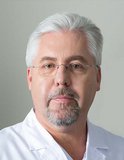
Professor Shabunin has 40 years of experience in hepatopancreatobiliary surgery. For the past seven years, he has been the chief surgeon of the city of Moscow and the head of the largest surgical clinic in Moscow and the Russian Federation. One of professor Shabunins major achievements is expanding the boundaries of specialized care and treatment of patients with liver and pancreatic pathology by introducing into the clinical practice highly complex surgical operations performed either laparoscopically, robotically or in a traditional open manner. Under his leadership, kidney and liver transplantation program was introduced and is widely implemented in the surgical clinic of the Botkin Hospital. Professor Shabunin is the head of the Department of Surgery of the Russian Medical Academy of Continuing Professional Education, where surgeons from all over Russia are educated.
Professor Shabunin completed internships in surgery and transplantology in Tokyo (Japan), Boston (USA), Brussels (Belgium), Munich (Germany), Stockholm (Sweden).
Professor Shabunin published 342 printed works, 5 monographs, is a co-author of the National Manual of Surgery, as well as the Russian-German manual on minimally invasive surgery.
Friday, Feb 11, 2022
Tobias Keck (Germany): Pancreatic Surgery after Neoadjuvant Therapy - The New Challenge
Pancreatic Surgery after Neoadjuvant Therapy - The New Challenge
Prof. Dr. med. Tobias Keck, Luebeck, Germany
T.b.a.

Professor Keck started his medical career at the Department of Surgery at the University of Heidelberg. After two years of research at the Massachusetts General Hospital, Harvard Medical School, in the Pancreas Research lab, he returned to the Department of Surgery at the University of Freiburg and became Vice Chair of the Department in 2009. He was elected Chairmen of the Department of Surgery at the University of Lübeck in 2012, which includes visceral surgery, general surgery, thoracic surgery and vascular surgery as well as transplantation surgery. The main focus of the clinical work of Professor Keck is minimal-invasive oncologic surgery.
Professor Keck is Chair of the Working chapter of Robotics and Innovation in Surgery of the Association of General and Visceral Surgeons in Germany. He is a member of the Collegiate of the German Research Foundation (DFG) and member of numerous societies Since several years he is General Secretary of the German Chapter of the ACS. Additionally, Professor Keck is member of editorial boards of numerous scientific journals. He is Honorary Professor of two Ukrainian Universities, Bogomolets National Medical University, Kiew and Vinnytsia National Pirogov Memorial Medical University.
The Department of Surgery at the University of Lübeck is German Center of Excellence for minimal-invasive surgery (DGAV).The main focus of research of the Department lies within hepato-pancreato-biliary oncology, oncologic research and minimal-invasive surgery in the clinical context.
John Neoptolemos (Germany): Where is the Way to Personalized Oncology in Pancreatic Cancer ?
Where is the Way to Personalized Oncology in Pancreatic Cancer ?
Prof. Dr. John Neoptolemos, Heidelberg, Germany
What do we really know about treating pancreatic cancer? It is a highly lethal malignancy. In the past 30 years there has been some progress in 5-year survival rates increasing from 2.5% to 10% for all cases. The best results are achieved with surgical resection and combination chemotherapy (up to 30-50% survival). The sequence of treatment is important depending on the stage of the disease: surgery then adjuvant chemotherapy for resectable disease, whilst neoadjuvant therapy then surgery has better survival for borderline disease. We know that not all tumor molecular subtypes respond in the same way to chemotherapy, Classical being more responsive than Basal. Differentiating predictive responses may be possible with RNASeq transcriptomic signatures (ESPAC6/7). Targeted therapies based on actionable mutations and fusions is possible in 3-5%, but with short clinical benefit. Spatial transcriptomics now allows single cell profiling of tumour and resident immune cell populations to further advance subtyping and treatment options.

John Neoptolemos is Professor of Surgery and Research Group Leader at the University of Heidelberg since 2017, and a leading pancreatic specialist with circa. 75,000 scientific citations, £60m in research grants and 300 invited lectures. He is the Chair of the European Study Group for Pancreatic Cancer (ESPAC). He obtained a double degree in Natural Sciences and Philosophy at Cambridge University in 1973. He was appointed to the Liverpool University Chair of Surgery in 1996, and made an Academy of Medical Sciences Fellow and an NIHR Senior Fellow. In Liverpool, he established for the CRUK Centre, the Pancreas Biomedical Research Unit, the ECMC and the CRUK Trials Unit and received the Freedom of the City. He is an affiliate of the German Society of Surgery, the Hungary Society of Surgery and Nanjing Medical University. He received three Department of Health Platinum Awards, the APA Hirschberg Award, the Ruth Brufsky Award, the Henry Lynch Award, and the EPC Life Time Achievement Award, and elected to the Academia Europaea.
Alexander Arlt (Germany): Advanced Endoscopic Management of Pancreatitis
Advanced Endoscopic Management of Pancreatitis
Prof. Alexander Arlt, Oldenburg, Germany
Over the last years endoscopic management of acute and chronic pancreatitis emerged as first line diagnostic and therapeutic options in nearly all aspects of the diseases. Since gallstones are still the leading cause for acute pancreatitis with increasing incidences all over the world, strategies for a diagnostic work up are very important for management of these patients. Furthermore, pancreatic fluid collections and infection of necrosis determine the late phase morbidity of the disease, defining a need for minimal invasive treatment options. In chronic pancreatitis the diagnosis and or exclusion of autoimmune pancreatitis versus pancreatic malignancies, pain management and interventional approaches to pancreatic duct alterations are hot topics.
In this talk, we will discuss the evolution of EUS as a gold standard in diagnostic and therapeutic algorithms in acute pancreatitis and options for endoscopic assessment and therapy of chronic pancreatitis.

Alexander graduated from Christian Albrecht University in Kiel and then received his medical training in internal medicine, intensive medicine, gastroenterology and endoscopy at the university hospital of Kiel Germany under the guidance of Prof. Ulrich Fölsch, Prof. Stefan Schreiber and Prof. Anette Fritscher-Ravens. He was leading senior physician of the internal medicine department before he was appointed to his current position as head of gastroenterology and endoscopy at the university hospital in Oldenburg. The focus of the clinical and scientific work is deciphering resistance mechanism of GI-cancer and endoscopic management of hepato-pancreatico-biliary diseases.
Giovanni Marchegiani (Italy): Oxford Discussion | Pro observation: Branch duct type IMPN - observe or resect
Oxford Discussion | Pro observation: Branch duct type IMPN - observe or resect
Prof. Dr. Giovanni Marchegiani, Verona, Italy
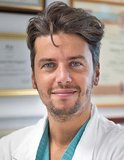
Giovanni graduated from Alma Mater Studiorum in Bologna and then studied HPB surgery and multiple organ transplantation at the San Raffaele Hospital, Milan in addition to the New York University and Thomas Jefferson University, Philadelphia, USA. He completed surgical training at the University of Verona and was a Research Fellow in pancreatic surgery at the Massachusetts General Hospital, Boston, USA before his current position as junior faculty at the Verona Pancreas Institute. Giovanni has published over 200 peer-reviewed papers and was BJS Editor Assistant 2020–2021. He is currently Editor of BJS Open. He is secretary of ISGPS, coordinator of YOUPPIE (Young Pancreatologists in Europe) of the EPC, Chair of the Communication committee of the EAHPBA, faculty of UEG. He has received the UEG Rising Star Award in 2021.
Nicolas Zyromski (USA): Walled off pancreatic necrosis and other nasty aspects of acute pancreatitis
Walled off pancreatic necrosis and other nasty aspects of acute pancreatitis
Prof. Dr. Nicolas Zyromski, Indianapolis, USA
Necrotizing pancreatitis occurs in 15 to 20% of all acute pancreatitis patients. This most severe manifestation of the disease results in five-to-six-month hospitalization and illness on average, with accompanying challenges in managing organ failure, debilitation, and malnutrition in a chronic inflammatory and catabolic state. The management of walled off pancreatic necrosis (WON) has evolved dramatically over the past decade. Contemporary WON management starts with medical management and progress is in a stepwise fashion to percutaneous, endoscopic, and other minimally invasive techniques. Traditional open operative pancreatic debridement is still required in select patients. The disease is approached as a multidisciplinary fashion and optimal outcomes depend on experienced clinical judgment. This talk will highlight features of necrotizing pancreatitis management including patient selection, clinical management pearls, timing of intervention, and technical aspects of intervention for patients with walled off pancreatic necrosis.

Nicholas J. Zyromski, M.D. completed his general surgery training at the Medical College of Ohio in Toledo, Ohio. During the course of his residency, he completed a two-year NIH sponsored basic research fellowship under the mentorship of Dr. Michael Sarr at the Mayo Clinic, Rochester, Minnesota. He joined the Indiana University faculty in 2005. Dr. Zyromski’s major clinical interest is in pancreatic disease, particularly severe acute pancreatitis. His research focus is on pancreatic disease including pancreatitis and pancreatic adenocarcinoma. He is active nationally and internationally in the leadership of major HPB associations including AHPBA, IHPBA, SSAT, and the Pancreas Club, of which he has served as co-director since 2015. Dr. Zyromski is currently Professor of Surgery and Program Director of the IU HPB surgery fellowship. He resides in Indianapolis with his wife Jennifer, who is also a general surgeon, and their 6 children.
Markus Lerch (Germany): Genetics of pancreatitis – A perspective
Genetics of pancreatitis – A perspective
Prof. Dr. Markus Lerch, München, Germany
Since the discovery of the first Trypsin (PRSS1) mutation in hereditary pancreatitis 25 years ago, much progress has been achieved in identifying genetic changes that predispose to pancreatitis. Initially efforts focused on so-called candidate-genes, which encode proteins that pathophysiological studies had identified as being relevant for pancreatitis. Most involved proteases, such as trypsin-isoforms, or inhibitors/antagonists of proteases. Once genome-wide analyses (GWAS) became available (and affordable) hypotheses-free investigations identified susceptibility genes outside the protease-antiprotease cascade. The very latest approach involves whole-exome or whole-genome sequencing techniques and will invariable result in additional susceptibility factors. Not only for disease-onset, but also for severity, clinical course and complications. Clinically relevant genetic information also includes that of microbiota, i.e. the community of organisms that coexist in the host’s body, most prominently the intestinal microbiome. The latter appears to play a prominent role in the pancreas and pancreatitis.
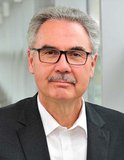
Markus Lerch is a professor of medicine, physician-in-chief and CEO of Munich University Hospital (LMU Klinikum München), one of Europe’s preeminent medical institutions. Until 2020 he served as Chairman of the Department of Medicine A at Greifswald University Hospital. His research addresses the pathophysiology, cell biology and genetics of pancreatic disorders. In 2001 he was awarded an Honorary Fellowship of the Glasgow Royal College of Physicians and Surgeons (FRCP), in 2016 the EPC Lifetime Achievement Award and in 2018 the George-Palade-Prize in Cell Biology of the International Pancreatic Association.
Saturday, Feb 12, 2022
Johanna Laukkarinen (Finland): Postoperative Pancreatitis : A new Paradigm for Ways to Overcome Surgical Complications?
Postoperative Pancreatitis : A new Paradigm for Ways to Overcome Surgical Complications?
Prof. Dr. Johanna Laukkarinen, Tampere, Finland
T.b.a.
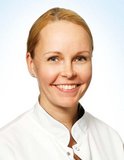
Professor Johanna Laukkarinen works as the Head of the Department of gastroenterology and alimentary tract surgery in Tampere University Hospital, and as the Professor of surgery in Tampere University, Finland. She is a pancreatic surgeon and operates mainly on pancreatic cancer patients. In the field of research, her main interests include pancreatic tumors, pancreatic surgery, acute pancreatitis, biodegradable stents and long-term pancreatic cell culture models. She is the leader of Tampere pancreas research group, and currently supervises 13 PhD students. Earlier in her career, she has also worked in Boston and in Singapore. She received the United European Gastroenterology (UEG) Rising Star award in 2013, the membership of European Surgical Association (ESA) in 2016 and the membership of International Surgical Group (ISG) in 2021.
Elisabeth Hessmann (Germany): Epigenetics in Pancreatic Cancer
Epigenetics in Pancreatic Cancer
Prof. Dr. Elisabeth Hessmann, Göttingen, Germany
The exceptionally aggressive tumor biology and the remarkable resistance to conventional chemotherapy determine the dismal prognosis of pancreatic ductal adenocarcinoma (PDAC) and are driven by a high degree of cellular and molecular tumor heterogeneity. Increasing evidence suggests that PDAC heterogeneity is determined by transcriptomic phenotypes which are hierarchically installed and controlled by epigenetic cues. Epigenetic regulatory proteins converge on the transcriptional landscape by controlling e.g. chromatin accessibility, DNA methylation, and histone modification, thus fine-tuning the transcriptional output of a given cell in a spatially and temporally restricted manner. The dynamic nature and the reversibility of epigenetic processes characterize epigenetic regulatory proteins as promising targets to shift transcriptional phenotypes of cancer cells towards less aggressive and more therapy susceptible states. In this talk, we discuss conceptual and translational efforts exploiting the role of selected epigenetic regulatory proteins in PDAC progression and therapy with a particular focus on the consequences of epigenetic reprogramming on the heterogeneity of the disease.
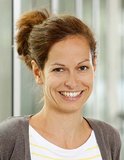
Elisabeth Hessmann is a professor for Genome Dynamics in Pancreatic Cancer in the Department of Gastroenterology, gastrointestinal Oncology and Endocrinology at the University Medical Center Goettingen. Her laboratory focuses on elucidating the mechanistic and functional implication of epigenetic and transcriptional processes in pancreatic cancer development and progression. Further, her group explores the chances and the context-dependency of successfully interfering with epigenetic processes in PDAC treatment. Elisabeth Hessmann is author of more than 30 peer-reviewed papers published in internationally renowned journals. Since 2020, she is the Scientific Head of the DFG-funded Clinical Research Unit 5002 “Deciphering Genome Dynamics for Subtype-specific Therapy in Pancreatic Cancer” (KFO5002).
Ilaria Pergolini (Germany): IPMN and Diabetes
IPMN and Diabetes
Dr. Ilaria Pergolini, Munich, Germany
T.b.a
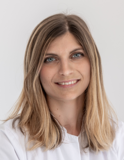
Ilaria Pergolini is an academic surgeon with interest in pancreatic surgery and a specific focus on pancreatic cystic neoplasms and prevention of pancreatic ductal adenocarcinoma. After medical school and residency in Italy, and a postdoctoral research Fellowship at the Dr. Warshaw Pancreatic Research Laboratory at the Massachusetts General Hospital/ Harvard Medical School in Boston (USA), she currently works at the Department of Surgery at the Technical University of Munich in Germany (Chair: Prof. Friess).
Giovanni Marchegiani (Italy): The Way to Big Data in IPMN: iCyst App and GERPACYST registry
The Way to Big Data in IPMN: iCyst App and GERPACYST registry
Prof. Dr. Giovanni Marchegiani, Verona, Italy
T.b.a.

Giovanni graduated from Alma Mater Studiorum in Bologna and then studied HPB surgery and multiple organ transplantation at the San Raffaele Hospital, Milan in addition to the New York University and Thomas Jefferson University, Philadelphia, USA. He completed surgical training at the University of Verona and was a Research Fellow in pancreatic surgery at the Massachusetts General Hospital, Boston, USA before his current position as junior faculty at the Verona Pancreas Institute. Giovanni has published over 200 peer-reviewed papers and was BJS Editor Assistant 2020–2021. He is currently Editor of BJS Open. He is secretary of ISGPS, coordinator of YOUPPIE (Young Pancreatologists in Europe) of the EPC, Chair of the Communication committee of the EAHPBA, faculty of UEG. He has received the UEG Rising Star Award in 2021.
Kim C. Honselmann (Germany): The Way to Big Data in IPMN: iCyst App and GERPACYST registry
The Way to Big Data in IPMN: iCyst App and GERPACYST registry
Kim C. Honselmann, Luebeck, Germany
T.b.a.
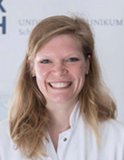
Georg Beyer (Germany): Round Table Discussion | The Way to Big Data in IPMN
Round Table Discussion | The Way to Big Data in IPMN
Dr. med. Georg Beyer, Munich, Germany
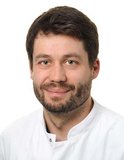
Georg received his medical degree from Greifswald University in Germany in 2014, including a Bachelor´s degree in Biomedical Science. After completing his medical thesis at the University of Greifswald and the University of Minnesota with summa cum laude, he pursued his medical training as a resident in internal medicine in Greifswald and at LMU Munich, where he continued as a endoscopy fellow. As of January 2022 he will be joining the LMU gastroenterology team as attending. Georg’s research interest lies with chronic pancreatic diseases including chronic pancreatitis and cystic pancreatic lesions. He is currently a junior PI at the LMU University hospital leading the translational pancreatology team. He serves as coordinator of the LMU pancreatic center, associate editor of Digestive Disease, co-chair of pancreatic task force of DGVS, the board of the German Pancreas Club since 2017 and is the president elect of the DPC for 2023. He has received numerous awards including Martin-Gülzow-Award of DGVS and is the first author of the recently published German S-3 guideline on management of pancreatitis
Marc Besselink: Minimally invasive pancreatic surgery - can it improve our outcomes ? Lessons from Dutch and European Trials
Minimally invasive pancreatic surgery - can it improve our outcomes ? Lessons from Dutch and European Trials.
Minimally invasive pancreatic surgery aims to improve patient outcome and decrease the impact of surgery on the patients quality of life. Until recently prospective studies were lacking. Now, however, we have several completed randomized trials and several trials are ongoing. The Miami evidence-based guidelines have clearly paved the way for the future, incorporating adequate training in high volume centers. Whereas outcomes for minimally invasive distal pancreatectomy are clearly superior for open distal pancreatectomy in the first two randomized trials. Now, for minimally invasive pancreatoduodenectomy more data is still needed, especially for robot-assisted surgery. The recently completed European DIPLOMA-1 and ongoing European DIPLOMA-2 trial will provide additional evidence on minimally invasive distal pancreatectomy in patients with pancreatic cancer only and for minimally invasive versus open pancreatoduodenectomy, both robot-assisted and open. The LEARNBOT training program provides high-quality training for robot-assisted pancreatoduodenectomy. Finally, the ongoing European Registry for Minimally Invasive Pancreatic Surgery will provide a wealth of information on clinical outcome and implementation.
Marc Besselink (1976) is the professor of Pancreatic and Hepatobiliary (HPB) surgery at Amsterdam. UMC, University of Amsterdam, the Netherlands. He studied at Utrecht University (Medicine) and Oxford University (Evidence Based Health Care). In 2002, he co-founded the Dutch Pancreatitis Study Group, in 2012 the Dutch Pancreatic Cancer Group, and in 2016 the European Consortium on Minimally Invasive Pancreatic Surgery. He was trained as a surgeon in Utrecht, Amsterdam, and Southampton. Marc has designed and coordinated multiple randomized controlled multicenter trials in pancreatitis and pancreatic cancer. He is the current chair of the scientific committee of the Dutch Pancreatic Cancer Group. Marc is the 2021-2022 President-Elect of EAHPBA and the Chairman of the Innovation sub-committee of IHPBA. You can follow Marc on Twitter @MarcBesselink.